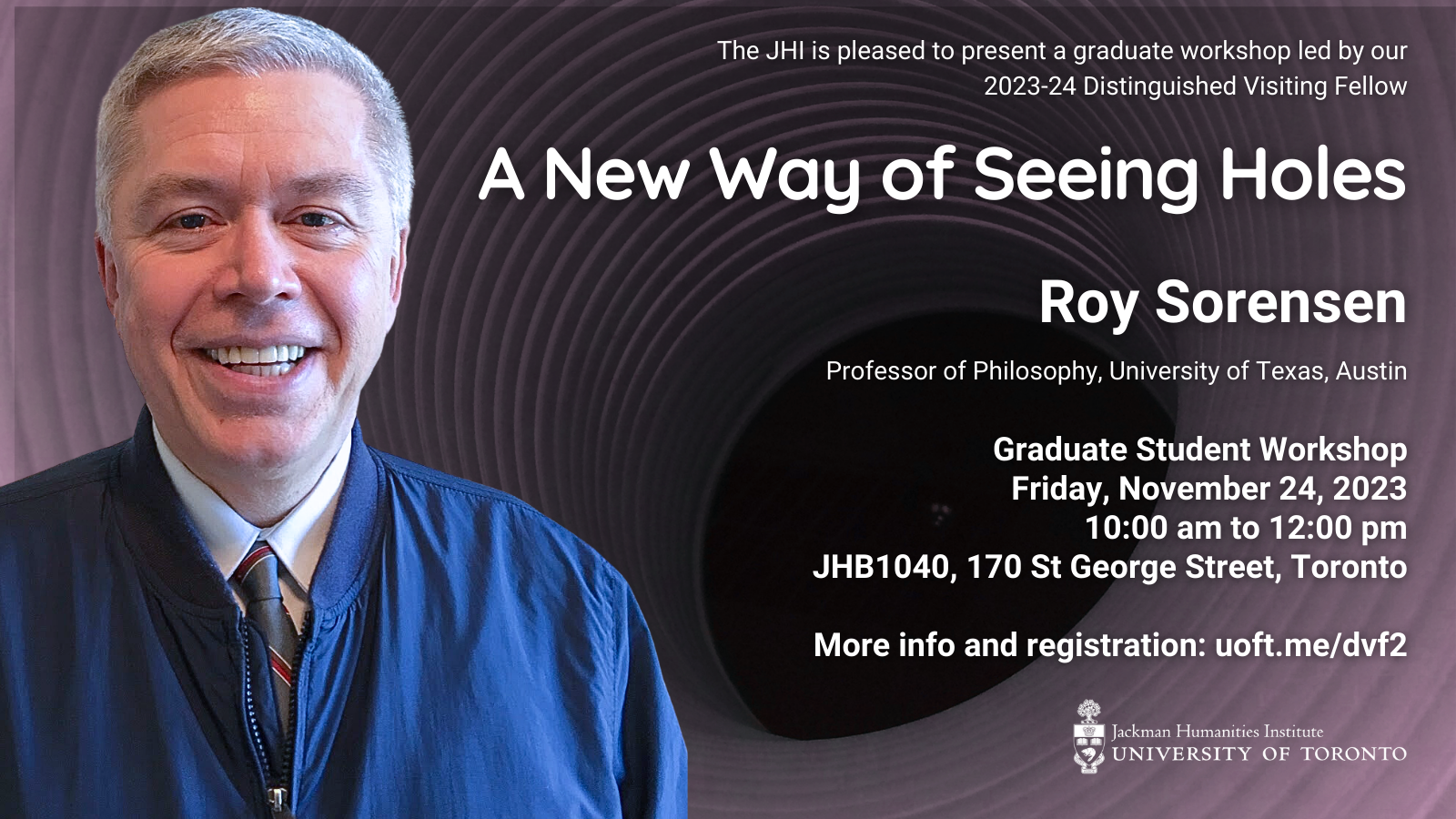A New Way of Seeing Holes
When and Where
Speakers
Description
Join us for this special graduate student workshop with 2023-24 JHI Distinguished Visiting Fellow Roy Sorensen, Professor of Philosophy, University of Texas, Austin and Professorial Fellow in Philosophy, University of St. Andrews. Seats are very limited! If you'd like to register for this workshop, email Kimberley Yates.
One can see a hole by seeing what it is a hole in (the hole’s “host”). One can see a hole by seeing what is in the hole (the hole’s “guest”). That has been generally assumed to exhaust all the ways of seeing a hole. But we can also see a hole by seeing another hole’s host. A nearly perfect example is formed by a pair of identical rings, the first placed exactly atop the second. Looking directly down, only the first ring is visible. But one can still see the second ring’s hole. Perfect examples can be formed with thin rings that have the same apparent diameter (in the astronomer’s sense). To get beyond thought experiment, rings will be exhibited. Holes are well suited for “look and see” metaphysics. They provide a model for all absences. Consequently, this third way of seeing holes has liberating implications for the perception of all absences.
Roy Sorensen is the author of Nothing: A Philosophical History (Oxford University Press, 2022). His earlier books include Seeing Dark Things: The Philosophy of Shadows, A Brief History of the Paradox, and A Cabinet of Philosophical Conundrums. He is interested in epistemology, metaphysics, and the philosophy of language. In his most recent book, he explores how nothing can cause something. The absence of something might seem to indicate a null or a void, an emptiness as ineffectual as a shadow. In fact, 'nothing' is one of the most powerful ideas the human mind has ever conceived. This book is a lively tour of the history and philosophy of nothing, explaining how various thinkers throughout history have conceived and grappled with the mysterious power of absence—and how these ideas about shadows, gaps, and holes have in turned played a very positive role in the development of some of humankind's most important ideas. Filled with Sorensen's characteristically entertaining mix of anecdotes, puzzles, curiosities, and philosophical speculation, the book is ordered chronologically, starting with the Taoists, the Buddhists, and the ancient Greeks, moving forward to the Middle Ages and the early modern period, then up to the existentialists and present-day philosophy. The result is a diverting tour through the history of human thought as seen from a novel and unusual perspective.

Contact Information
Sponsors
- Jackman Humanities Institute


